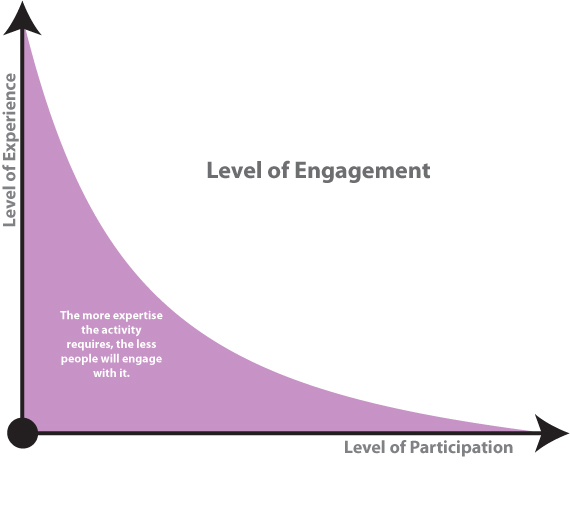
I’ve started a discussion (or I hoped I did) the other day — it was about LinkedIn algorithms for auto moderating. These algorithms don’t work well. As an example, I invoked a group discussion I’ve started in a group where I am a moderator that was moved to “jobs” because LinkedIn didn’t understand the content. The article I shared was on the psychology of criminal sentencing research. It had nothing to do with jobs. Then when I looked around, I found other articles that people shared that ended up under “promotions” and “jobs” tabs.
Different groups have different purposes. Some groups are about sharing information — I welcome people sharing articles about relevant topics. Such groups become magazines, news papers for narrow subject areas and self-selected audiences. That is very useful. Sometimes, there are discussion around these articles, sometimes not. That’s okay — that’s the kind of group it might be.
When groups start, they are a potentiality — something wonderful might happen…or might not. It takes at least 500 group members to start the group moving and propagating. (I did a bit of research on this a few years ago.) Before that number, it is a lot of work for the owner of the group to advance the content and to create a community. But at some point, the group, if successful, evolves to be something else. The owner can nurture the group/community, but the community has a voice as to what it wants to become. Like a child — you can nurture and provide support, but ultimately, the child becomes independent. And that is a measure of success.
Auto moderation forces the group into LinkedIn vision of what it wants for its future. But communities don’t work like that. Communities are like living organisms. LinkedIn can provide the right conditions, and they blossom into wonderful entities, surprising their owners and creators. Or LinkedIn can stifle a community (easy to do when the community is just in its infancy). That’s when group owners start to talk about moving their “children” to a different platform.
Any effort made in sharing some kind of content needs to be rewarded. The biggest problem with “Promotions” and “Jobs” tabs is that is where content goes to die — this is what no one sees, no one reads. Sure there are people who out there for self-promotion only. But most of the time, these sharings are genuine and meant to give something to other members of the group.
During our time with LinkedIn moderator meeting, we discussed all the reasons that people flag content — some of these reasons are malicious: “I don’t like this person”, “I don’t like this content”, “this content goes against my beliefs and thus should be banned”, “we’ve discussed this content last year already”, “I like having the power to zap content”, and so on. There are lots of non-legitimate reasons people flag. And this problem is only made worse when content is auto-flagged.
Some content is easy to moderate — ads to sell, threats, coercion, solicitation, etc. But some content is “grayer” — it’s not really an ad; it might be a story of coercion or solicitation; the language might be too rough but the content is still on point; etc. I feel this kind of content is good — I believe in as much freedom to express opinions and share content as possible. If someone objects, they should do so openly by writing a comment. No one should hide behind the “flag” button. The most interesting conversations might come from such “controversial” postings.
If you built a community, set it free!

